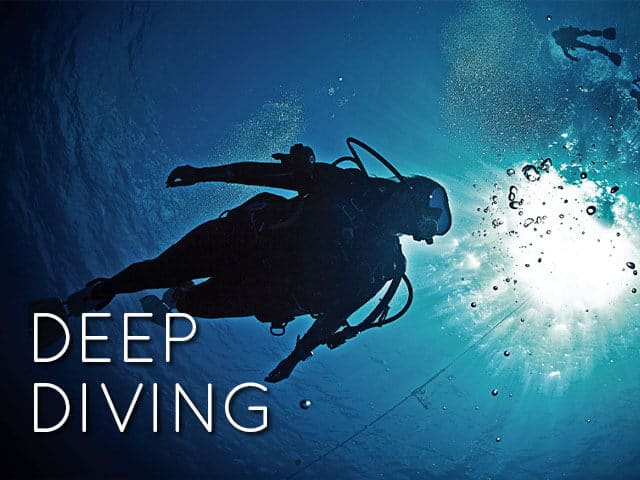10 Essential Skills You’ll Learn in a Deep Dive Course

Scuba diving is an exhilarating adventure that allows you to explore the underwater world in ways most people only dream about. However, if you’re looking to take your diving skills to the next level, enrolling in a deep dive course is a fantastic choice. This advanced training provides you with the skills and knowledge necessary to safely dive to greater depths, expanding your underwater horizons. In this article, we’ll explore the ten essential skills you’ll learn in a deep dive course and how they can enhance your diving experience.
1. Advanced Buoyancy Control
Mastering buoyancy is crucial for any diver, but it becomes even more important at greater depths. In a deep dive course, you’ll refine your buoyancy control techniques, allowing you to hover effortlessly and move smoothly through the water. Improved buoyancy control helps you conserve energy, avoid disturbing marine life, and prevent accidental contact with the reef or the ocean floor.
Benefits:
- Reduced air consumption
- Enhanced maneuverability
- Protection of marine environments
- Increased comfort and confidence underwater
2. Deep Dive Planning
Planning is a critical aspect of deep diving. In a deep dive course, you’ll learn how to meticulously plan your dives, taking into consideration factors such as depth, time limits, air consumption, and decompression stops. You’ll also become proficient in using dive tables and dive computers to calculate safe dive profiles and avoid decompression sickness.
Benefits:
- Increased safety and risk management
- Better understanding of dive profiles and limits
- Enhanced ability to plan and execute complex dives
- Reduced risk of decompression sickness
3. Navigation Skills
Navigating underwater can be challenging, especially at greater depths where visibility may be limited. A deep dive course will teach you advanced navigation techniques using compasses, natural landmarks, and dive patterns. You’ll learn how to maintain your bearings, find your way back to the ascent point, and explore underwater environments with greater confidence.
Benefits:
- Improved ability to navigate in low-visibility conditions
- Enhanced confidence in unfamiliar environments
- Increased safety during dives
- Better exploration and enjoyment of dive sites
4. Gas Management
Effective gas management is essential for deep diving, where increased depth and pressure can significantly impact your air consumption. In a deep dive course, you’ll learn how to monitor and manage your gas supply, calculate your remaining bottom time, and plan for adequate reserves. This skill is vital for ensuring you have enough air to safely complete your dive and ascend to the surface.
Benefits:
- Improved air consumption efficiency
- Enhanced ability to plan and manage dive times
- Increased safety and preparedness
- Reduced risk of running out of air during a dive
5. Emergency Procedures
Deep diving comes with its own set of risks, making it crucial to be prepared for emergencies. During a deep dive course, you’ll practice handling various emergency scenarios, such as out-of-air situations, equipment malfunctions, and diver rescues. These drills will equip you with the skills and confidence needed to effectively respond to emergencies and ensure the safety of yourself and your dive buddy.
Benefits:
- Increased confidence in handling emergencies
- Enhanced safety for yourself and dive buddies
- Improved problem-solving and decision-making skills
- Greater preparedness for unexpected situations
6. Decompression Theory and Procedures
Understanding decompression theory is fundamental for safe deep diving. A deep dive course will provide you with in-depth knowledge of how your body absorbs and releases nitrogen under pressure, the risks of decompression sickness, and how to manage your ascent to avoid it. You’ll learn about decompression stops, safety stops, and how to use dive computers to monitor your dive profile.
Benefits:
- Enhanced understanding of nitrogen absorption and release
- Improved ability to avoid decompression sickness
- Increased safety during ascents and descents
- Greater confidence in managing dive profiles
7. Equipment Familiarization
Diving to greater depths requires specialized equipment and a thorough understanding of how it works. In a deep dive course, you’ll become familiar with advanced diving gear, such as high-capacity tanks, redundant air sources, and dive computers. You’ll learn how to properly set up, maintain, and troubleshoot your equipment to ensure it functions correctly during deep dives.
Benefits:
- Increased proficiency with advanced diving equipment
- Enhanced ability to troubleshoot and solve equipment issues
- Improved safety and reliability of gear
- Greater confidence in using specialized equipment
8. Environmental Awareness
Deep diving often takes you to fragile and sensitive underwater environments. A deep dive course emphasizes the importance of environmental awareness and responsible diving practices. You’ll learn how to minimize your impact on marine ecosystems, avoid damaging coral reefs, and recognize signs of stress in marine life. This awareness is crucial for preserving the beauty and health of dive sites for future generations.
Benefits:
- Reduced environmental impact
- Enhanced appreciation for marine ecosystems
- Improved ability to identify and protect sensitive areas
- Promotion of sustainable diving practices
9. Psychological Preparation
Diving to greater depths can be mentally challenging, especially if you’re not accustomed to the increased pressure and reduced light. A deep dive course will help you develop the mental resilience needed to stay calm and focused in these conditions. You’ll learn techniques for managing stress, maintaining situational awareness, and staying composed during unexpected situations.
Benefits:
- Improved mental resilience and focus
- Enhanced ability to manage stress and anxiety
- Increased confidence in challenging conditions
- Greater enjoyment of deep diving experiences
10. Diving with Nitrox
Many deep dive courses include training on diving with nitrox, a breathing gas that contains a higher percentage of oxygen than regular air. Nitrox can extend your bottom time and reduce the risk of decompression sickness, making it a valuable skill for deep divers. You’ll learn how to analyze nitrox tanks, plan nitrox dives, and adjust your dive computer settings accordingly.
Benefits:
- Extended bottom time
- Reduced nitrogen absorption
- Increased safety during repetitive dives
- Enhanced understanding of breathing gases
Conclusion
Enrolling in a deep dive course is an excellent way to enhance your scuba diving skills and open up new underwater adventures. The ten essential skills you’ll learn will not only improve your safety and confidence but also allow you to explore deeper, more challenging dive sites. From advanced buoyancy control and navigation to gas management and emergency procedures, these skills are invaluable for any serious diver. So, if you’re ready to take your diving to the next level, consider signing up for a deep dive course this summer. The ocean’s depths await, offering endless opportunities for discovery and adventure.



